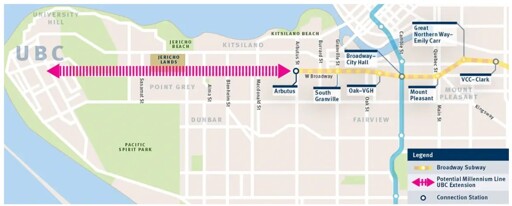I came across this piece:
I’m a big supporter of public transit and usually in favour of ambitious infrastructure projects. Still, this article raised some great points about how big transit builds are planned, justified, and communicated to the public.
It got me wondering, how do we strike the balance between building bold, future-proof systems and keeping projects practical and efficient? When is a project like this justified, vs LRT?
Would like to hear how others read it, either agreeing with it, or rebutting it.



Busses!!
Nobody likes them but there is no way you can sabotage them at a structural level because busses don’t need politically fragile construction and maintenance projects to work. Busses are the guerilla warfare of mass transit, when corrupt, wealthy interests destroy or sabotage other forms of mass transit they also do their worst to bus systems and yet the busses still keep crawling out of the woodwork and moving people even when it seems like everybody hates them, they still keep running, everywhere in almost every city, all over the world…
I love more permanent forms of mass transit, their permanence imbues a sense of place at a basic level for one, but talking tactics here… busses are just beasts when it comes to escaping death from both austerity on one hand AND unsustainable overreach on the other.
It depends on what your goals are with the transit.
If you’re trying to connect existing, dense areas, then buses are potentially fine.
If you’re trying to guide future growth, buses are useless. Bus routes can change, train tracks can’t. Developers will build around train stations because of this immovability.
That said, if what this poster says is true, then LRT might have been the right choice not just for the UBC extension, but the entire Millenium Line extension from Commercial-Broadway all the way to UBC. But try convincing the car-brained of that… Doug Ford is a good example of someone who thinks it’s a good idea to spend 10s of billions on subway instead of 100s of millions on LRT.